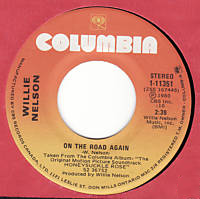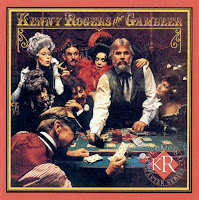On the (Legislative) Road Again
 With the WSOP Main Event finally in the rearview, attentions are slowly turning back to ongoing machinations concerning the shambles that online poker in the U.S. currently is and the possibility for some newly-regulated game to become available to Americans in the future.
With the WSOP Main Event finally in the rearview, attentions are slowly turning back to ongoing machinations concerning the shambles that online poker in the U.S. currently is and the possibility for some newly-regulated game to become available to Americans in the future.Setting aside the whole FTP-Groupe Bernard Tapie thing, as well as that story from a couple of weeks back that Absolute Poker/UB have a plan to liquidate assets in order to pay back its players, there appear to be three main areas on which to focus when it comes to federal-level legislative talk about online poker.
And anyway, like we were talking about yesterday, three is always a cool amount to use for organizing one’s thoughts, right?
One is this so-called “super committee,” a.k.a. the Joint Select Committee for Deficit Reduction, which continues to meet and formulate recommendations for cutting spending and increasing revenue. The bi-partisan group of senators and House members has a report due on November 23, and within a month of that the Congressional houses will be voting “up or down” (with no amendments or filibusters allowed) on what is recommended.
Some have suggested an online poker bill could sneak into the recommendations somehow, although most of the scuttlebutt seems to be suggesting that’s unlikely to happen. In any case, in a couple of weeks we’ll know for sure whether or not to strike this one off the list of items to watch.
The second bit of news to focus on is that next week not one but two different Congressional committees will be meeting to talk about online gaming.
 One is the Senate Committee on Indian Affairs, which will meet on Thursday, November 17 to talk about the native Americans' stake in particular. The other is that same House subcommittee that met last month to talk online gaming (the Subcommittee on Commerce, Manufacturing, and Trade) who will be meeting on Friday, November 18 to pursue the subject further.
One is the Senate Committee on Indian Affairs, which will meet on Thursday, November 17 to talk about the native Americans' stake in particular. The other is that same House subcommittee that met last month to talk online gaming (the Subcommittee on Commerce, Manufacturing, and Trade) who will be meeting on Friday, November 18 to pursue the subject further.Those meetings will most surely create some buzz, and perhaps even some concrete steps toward a vote on an online poker-related bill. Of course, with 2012 being an election year, the window for any such bill making its way up the legislative ladder will be closing soon.
Finally, we learned back in early October how two of the figures targeted in the Black Friday indictment -- John Campos (the vice-chairman and co-owner of that Sun Trust bank in Utah) and Chad Elie (a payment processor) -- were fighting the feds in court, having both filed motions to have the counts against them dismissed. Those motions largely are resting on the argument that the online poker sites with which they dealt were not “illegal gambling businesses” as defined (or not-so-well defined) in the Illegal Gambling Business Act of 1970 or the UIGEA.
Of course, in addition to being accused of violating these laws (the IGBA and UIGEA), these two are also both said to have conspired to commit money laundering, and Elie is looking at a bank and wire fraud charge, too. So how well their arguments about the online poker sites not being “gambling businesses” are carrying them in those contexts, I do not know.
In any event, late last week federal prosecutors responded by filing a 51-page defense of their case responding to the pair’s motions to dismiss the counts. That response makes several points, one being an affirmation of the position that poker is indeed gambling, despite the many arguments that have been made regarding its skill component. The feds also address in great detail other misdeeds by the pair with regard to the non-UIGEA stuff, too.
Additionally, in a kind of superfluous attempt to explain how when the IGBA was passed into law poker had long been considered to be gambling by the culture a large, the feds botch a reference to the poker song “The Gambler”:
Those who spent their time playing poker in saloons were called ‘gamblers’ from the outset, and poker is described almost unfailingly as ‘gambling’ in a variety of contexts in reported cases dating back to the 1800s. This characterization of poker as gambling reflects society’s traditional understanding of poker, particularly at the time of IGBA’s enactment. For example, Willie Nelson’s classic poker song, about knowing when to “hold ’em” and when to “fold ’em” is called -- based on the movie by the same name -- “The Gambler.”
 As just about all of the rest of us know, that was Kenny Rogers, not Willie Nelson, who recorded the referenced song. His version first released in late 1978, a few years after the IGBA came about. The TV movie starring Rogers -- the first of several -- came a couple of years later. Don Schlitz first wrote it (and recorded it earlier, actually), a story I wrote about in a “Poker & Pop Culture” piece a while back.
As just about all of the rest of us know, that was Kenny Rogers, not Willie Nelson, who recorded the referenced song. His version first released in late 1978, a few years after the IGBA came about. The TV movie starring Rogers -- the first of several -- came a couple of years later. Don Schlitz first wrote it (and recorded it earlier, actually), a story I wrote about in a “Poker & Pop Culture” piece a while back. In any event, the feds are pretty adamant in their response about poker falling under the heading of gambling, likening it to other examples of gambling that may incorporate an element of skill -- they even admit sports betting has some of that -- but in which outcomes are ultimately “subject to chance.”
If you want more details on this latter item, Nathan Vardi of Forbes reported on the feds’ reponse a week ago. The guys at PokerFuse wrote up a detailed analysis of the response earlier this week. And Pokerati Dan chimed in last night as well with a quick list of some of the feds’ major points.
Of these three items, then, the “super committee” doesn’t seem too promising, nor does the Campos-Elie case inspire much confidence regarding the UIGEA ever getting taken down. Thus do we look to those Congressional committees, watching and wondering if and when any change for online poker in U.S. is coming any time soon.
Or whether, when it comes to American online poker players, our situation continues to resemble that of the figures Willie Nelson sang about... “like a band of gypsies we go down the highway.”
Labels: *the rumble, Black Friday, Forbes, Kenny Rogers, law, Pokerati, PokerFuse, UIGEA














0 Comments:
Post a Comment
<< Home